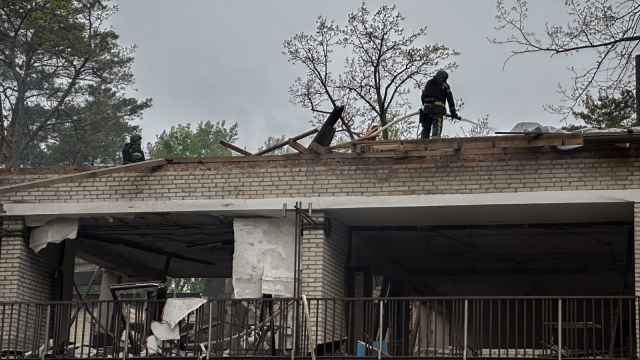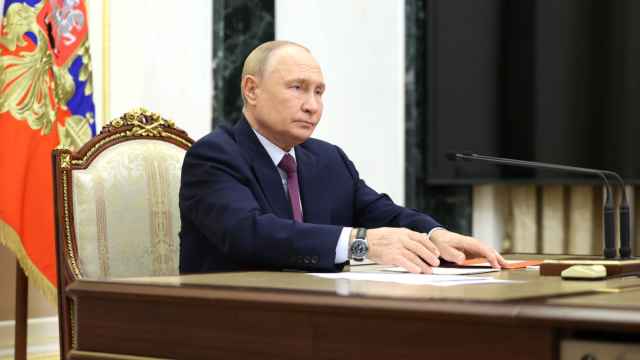BELOKURIKHA — Conditions for the coming harvest are not as favorable as thought, industry observers said Saturday, citing evidence of patchy snow cover and a potential lack of supplies for spring sowing.
"It doesn't look as optimistic as it might," president and chief executive of the SovEcon think tank Andrei Sizov told a conference in Altai, a key Siberian producing region.
"When we look at the view from space, the situation looks different. It shows poor development of snow cover at the end of November," Sizov said, showing satellite images of fields in another key producing area, Voronezh, in the Black Earth region.
The government imposed a ban on grain exports last year after a drought killed swathes of crops, reducing the overall harvest by a third from the previous year.
The ban expires on July 1, but the government has warned that it will only decide whether further restrictions are warranted when prospects for the upcoming harvest become clearer.
Of a sown area of about 15 million hectares, Sizov said about 14 million would be harvested for a winter crop of about 38 million tons.
Crop and industry conditions varied widely from region to region. The southern regions north of the Black Sea were left facing a glut of milling wheat after favorable winter weather followed a healthy harvest that could not be exported.
Particularly hard hit was winter grain in the Volga River valley, the northern part of which was savaged by late summer forest fires as well as drought.
"In Saratov, the level of [winter] sowing was only 38 percent [of previous years' levels]," said Dmitry Rylko, director of the Institute for Agricultural Market Studies.
That adds pressure to farmers to produce successful spring crops.
Russia is expected to sow spring grains over roughly 31 million hectares, a level Sizov called historically low.
In addition to the ground lost to poor weather, farmers face other
obstacles to spring planting: tight access to loans after several years of financial difficulty culminating in the drought of last year, and irregular fertilizer supplies.
Even in the relatively untroubled south, Rylko said, "farmers were wailing over what was going on with fertilizer."
In a sign the industry could live with the consequences of the drought for some time, Sizov said seed supplies presented a concern.
In the case of barley, which is in deficit for animal feed and brewing after a harvest that came in at roughly half the previous year's level, Sizov said growers in the Volga had requested the government set aside all intervention stocks of barley for seed.
"The availability and quality of seed for spring planting is a very tough question after the drought," he said.
A Message from The Moscow Times:
Dear readers,
We are facing unprecedented challenges. Russia's Prosecutor General's Office has designated The Moscow Times as an "undesirable" organization, criminalizing our work and putting our staff at risk of prosecution. This follows our earlier unjust labeling as a "foreign agent."
These actions are direct attempts to silence independent journalism in Russia. The authorities claim our work "discredits the decisions of the Russian leadership." We see things differently: we strive to provide accurate, unbiased reporting on Russia.
We, the journalists of The Moscow Times, refuse to be silenced. But to continue our work, we need your help.
Your support, no matter how small, makes a world of difference. If you can, please support us monthly starting from just $2. It's quick to set up, and every contribution makes a significant impact.
By supporting The Moscow Times, you're defending open, independent journalism in the face of repression. Thank you for standing with us.
Remind me later.





